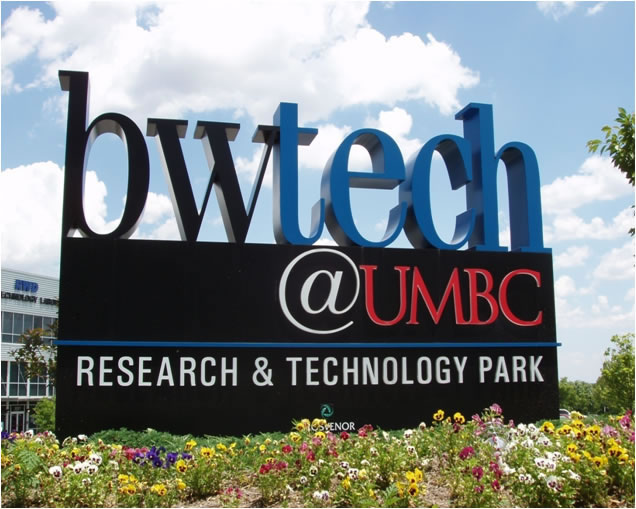Maryland universities are home to lots of cyber researchers and technologists working on new ways to secure our increasingly technology-reliant society. Those higher education institutions are also home to graduate students looking for an entrepreneurial leap.
A new program is looking to connect the two, and form new startups in the process.
The Maryland New Venture Fellowship for Cybersecurity, created by University of Maryland, Baltimore County incubator bwtech@UMBC and the University System of Maryland, is launching this fall to support 10 early-stage teams. The program was recently awarded $594,000 in federal funds from the Economic Development Administration of the United States Department of Commerce. With matching funds from Baltimore County, the total funding reaches about $1.3 million.
It’s an example of universities playing a role in the changing local economy.
In Maryland cyber and economic development circles, conversation often focuses on putting more business knowhow around the state’s high concentration of cyber and data science talent. Clustered around top federal government agencies and education centers like the Fort Meade-based National Security Agency, many of the state’s universities are designated as “centers of excellence.” Whether they are faculty or grad students, these technologists are working on tech that can be more advanced than what the private sector is developing. But when it comes to turning that technology into a commercial product, the work of forming a company and validating the market often falls to a different skillset.
“There’s just an incredible wealth of researchers and technologists in the region that are developing tools in information security, cybersecurity and other security technologies, but there is a disconnect between those technologists and a potential business lead,” said Megan Wahler, director of entrepreneurial services at bwtech@UMBC, who is leading the program. “That’s where we want to look at the different entrepreneurship programs, the different graduate programs and students that are interested in becoming an entrepreneur to go through this experiential learning program and have the opportunity to be a part of an early-stage company.”
The program will focus on a handful of universities commercializing technologies in the first year, including UMBC and the system's institutions in the Baltimore area and College Park.
The program will match the technologists and students. Teams will also include an entrepreneur who serves as a mentor.
When it comes to technology, Wahler said the program is looking broadly at securing information systems, utilities, infrastructure and supply chains. For students interested in starting companies, it’s also a way to “de-risk” a potential startup. The fellowship will also provide a $10,000 stipend to the business-side students.
It’ll focus on a handful of universities commercializing technologies in the first year, including UMBC and the system’s institutions in the Baltimore area and College Park. Going forward, the program will expand to all 12 USM universities and private universities next year, and will also include technology from the state’s many federal agencies in year three.
Inter-university teams are not only encouraged, but are in fact ideal, Wahler said. For instance, a researcher working on patient health security at UMBC paired up with an MBA student at UM College Park would be a great outcome.
“I believe that having greater spokes in your network increases your chances of success significantly,” she said.
Wahler said the fellowship model is aimed at supporting a diverse cohort in race, background and income level. That means considering how privilege could play into the application process, and correcting for it. Some students may have had blue chip internships, while others may be working to put themselves through school. It’s a change from what might be a typical university process.
“We’re looking at what somebody can bring to the table from their experience and we’re looking at that from a very different lens than may have looked upon it before,” Wahler said.
Kicking off with a match event on Nov. 5, the eight-month program is designed for the earliest stage of a venture. The teams will take on programming areas such as customer discovery, technology development timelines, pricing models and market analysis. Then, they’ll pitch at the big RSA cybersecurity conference in May.
With a focus on the early stage of company formation, Wahler believes it can serve as a pipeline to other resources in the region. For instance, she said, a team that starts and validates in this program could then be positioned to win additional grant funding, and eventually become a team that pitches for investment funding at the DataTribe Challenge.
In a statement, Baltimore County Executive Johnny Olszewski said the program “will be vital in helping us reach our economic development potential, create opportunities for underrepresented communities and retain top-tier talent in our region — all while securing our nation.”
Join our growing Slack community
Join 5,000 tech professionals and entrepreneurs in our community Slack today!
Donate to the Journalism Fund
Your support powers our independent journalism. Unlike most business-media outlets, we don’t have a paywall. Instead, we count on your personal and organizational contributions.

Maryland firms score $5M to manufacture everything from soup to nanofiber

National AI safety group and CHIPS for America at risk with latest Trump administration firings

How women can succeed in male-dominated trades like robotics, according to one worker who’s done it


